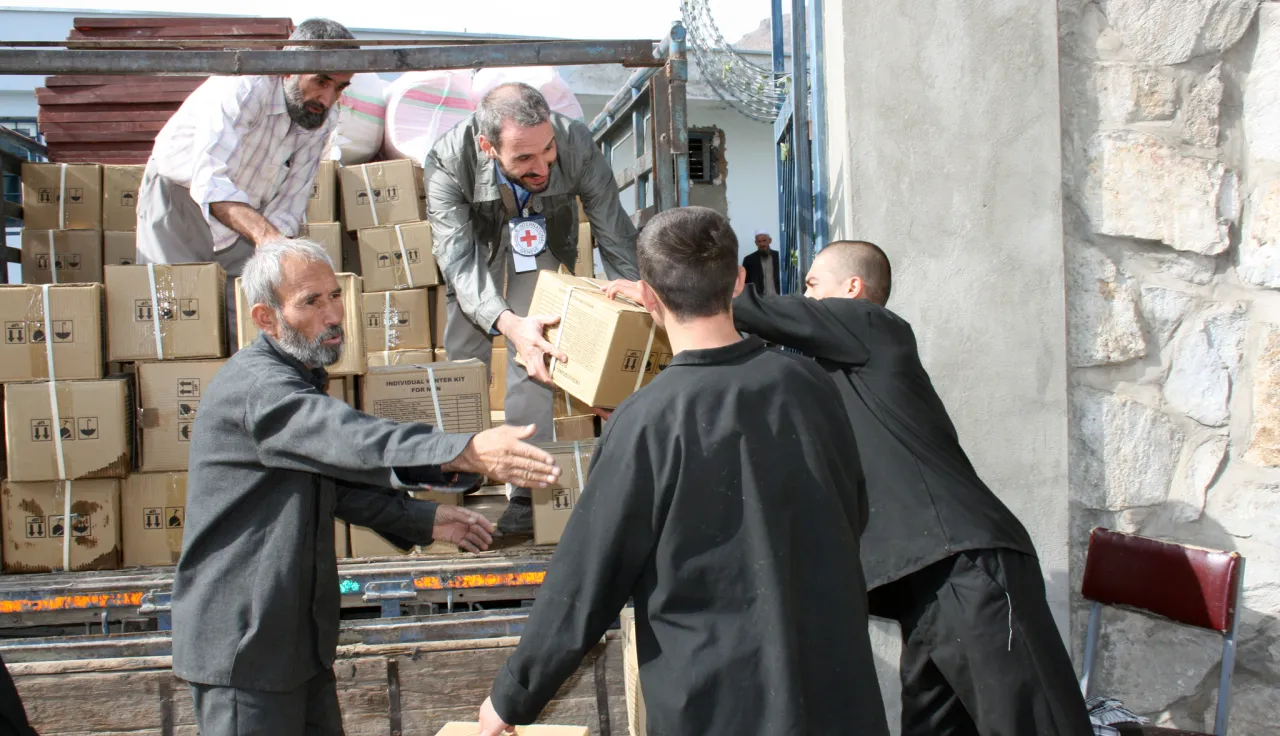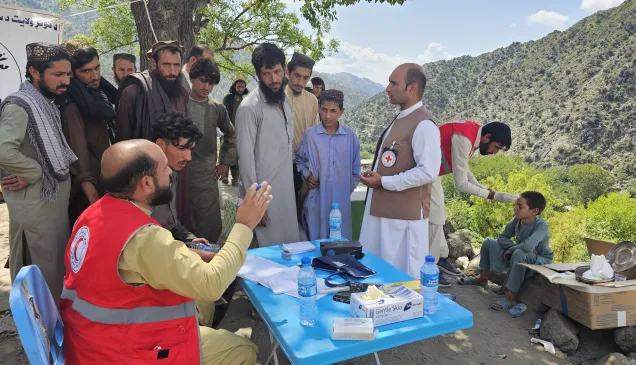Afghanistan: Facts and figures for April-June 2016, focusing on detention

The ICRC's role in prisons is to monitor conditions of detention and the treatment of detainees, and to ensure respect for a prisoner's right to a fair trial, fair treatment and judicial guarantees following their arrest.
The ICRC aims to visit all detainees held as a result of the conflict in Afghanistan, from all sides. We visit places of detention in accordance with our own very strict rules.
These include:
- ICRC staff being able to talk confidentially with every detainee of our choice;
- detainees being able to maintain contact with their families through Red Cross messages or 'I am safe and well' forms known as 'Salamats'.
Between April and June 2016, ICRC staff:
- carried out 14 visits to 13 detention centres and prisons;
- visited and individually monitored nearly 690 detainees falling under the ICRC's mandate, of whom we saw 43 for the first time;
- helped two Afghan ex-detainees return home;
- exchanged over 2,340 Red Cross Messages between detainees and their families, with support from the Afghan Red Crescent Society;
- helped families of detainees in the Prison and Detention Facility in Parwan to re-establish and maintain contact with relatives, through 2,281 phone calls and more than 890 family visits;
- organized 16 family visits for detainees held in Pol-e-Charkhi Central Prison;
- received 134 queries from families about arrested or disappeared relatives, of which we were able to resolve 67;
- carried out 53 health-related visits to ten places of detention;
- provided technical and financial support, plus medical supplies, to Ministry of Public Health (MoPH) clinics for detainees in Kandahar and Herat provincial prisons, enabling the MoPH to conduct 9,976 consultations;
- distributed hygiene items (including soap, buckets and cleaning materials) to people in places of detention;
- built a 12-metre high water tower with a capacity of 30 cubic metres in Farah Provincial Prison, increasing the amount of water available to inmates;
- completed work on improvements to the inspection area in Pol-e-Charkhi Central Prison.
Other ICRC activities this quarter included:
- aiding conflict-affected communities;
- conducting basic first-aid training;
- providing medical care;
- improving access to water and sanitation;
- briefing all parties to the conflict on international humanitarian law;
- working with the Afghan Red Crescent Society.
Read the full report on our work in Afghanistan for April to June 2016.



